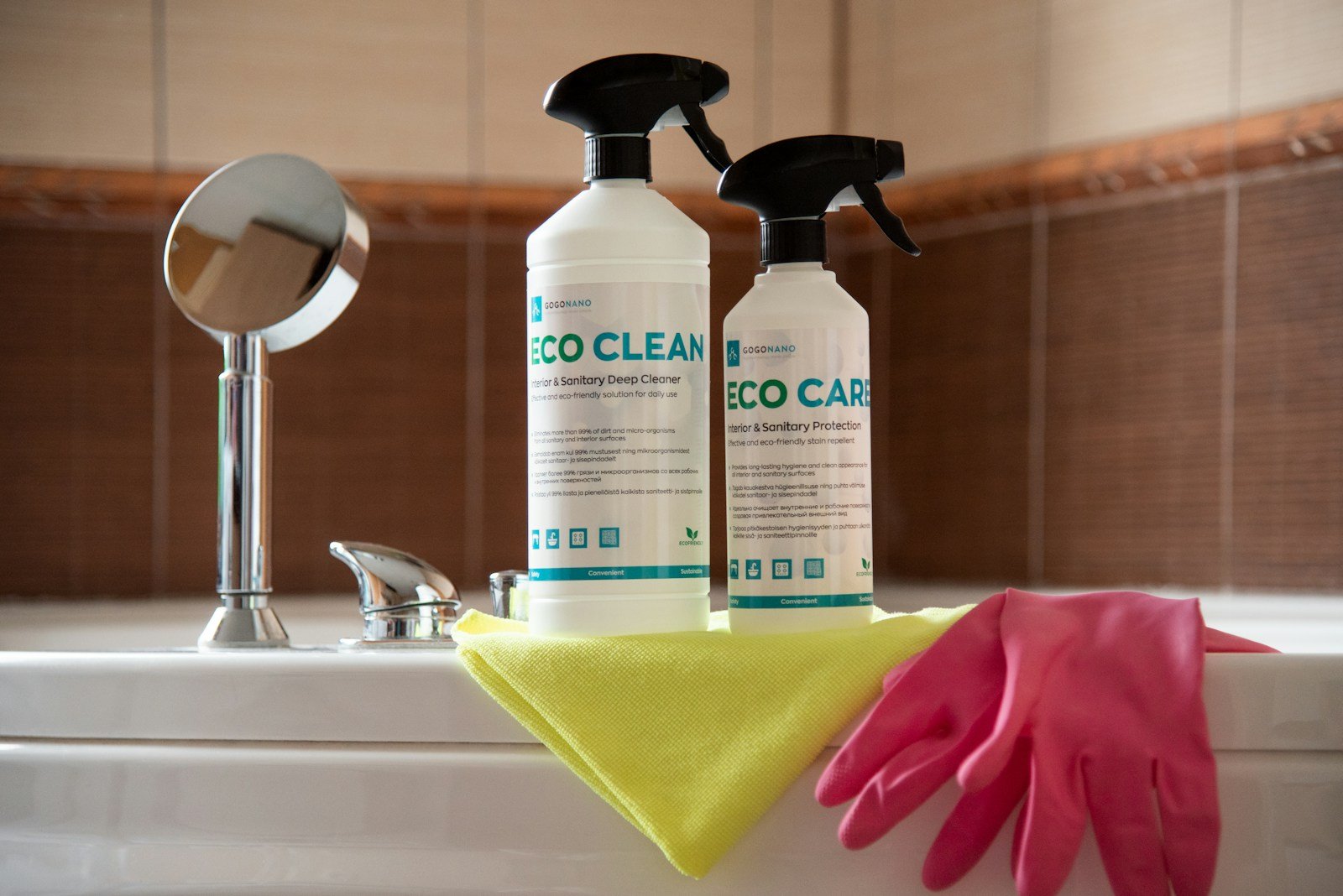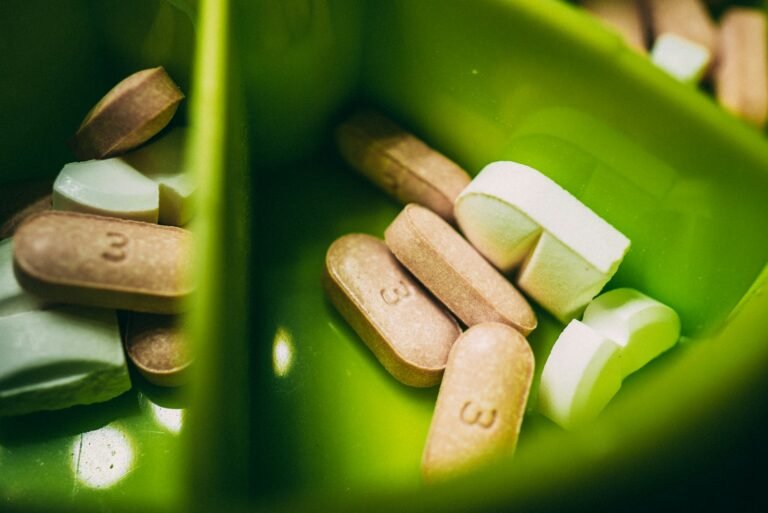How to Make Natural Cleaning Products
DIY your way to a cleaner home with natural cleaning products that are safe for you and the environment! Making your own cleaners not only saves you money but also allows you to control what goes into them. In this guide, you’ll discover simple recipes using everyday ingredients that effectively tackle dirt and grime without the harsh chemicals found in store-bought cleaners. Let’s probe the world of natural cleaning and make your home sparkle!
Key Takeaways:
- Utilize common ingredients such as vinegar, baking soda, and important oils to create effective cleaning solutions.
- Combine materials in appropriate ratios for various purposes, like using vinegar and water for glass cleaner or baking soda for scrubbing.
- Experiment with important oils not only for fragrance but also for their antibacterial and antifungal properties in your cleaning products.
- Store your homemade cleaners in labeled, reusable containers to ensure safety and easy identification.
- Test your natural cleaning products on small areas before applying to larger surfaces to ensure compatibility and effectiveness.
The Allure of Natural Ingredients
The Benefits of Going Green in Your Cleaning Routine
Switching to natural cleaning products offers several enticing advantages. For starters, you create a healthier environment for yourself and your loved ones. Traditional cleaning agents can contain harsh chemicals that contribute to indoor air pollution, which can irritate your respiratory system and trigger allergies. By opting for natural ingredients, you significantly reduce the risk of adverse health effects while ensuring that your home is a safe haven for children and pets. In fact, studies indicate that using natural cleaners can lead to improved indoor air quality, which enhances your overall well-being.
Moreover, incorporating green cleaning practices can be kinder to the planet. Many conventional products contain ingredients that are detrimental to the environment, as they can end up in waterways and harm aquatic life. Conversely, natural ingredients like vinegar and baking soda are biodegradable and less likely to contribute to pollution. You play a role in creating a cleaner, greener planet simply by choosing how you maintain your living space. Your cleaning choices reflect your values and commitment to sustainability.
Common Natural Ingredients and Their Cleaning Power
Embracing natural ingredients in your cleaning routine means tapping into powerful, multitasking substances found right in your kitchen or easily accessible at your local store. Baking soda is famed for its gentle abrasive qualities, making it perfect for scrubbing surfaces and neutralizing odors in everything from your refrigerator to your carpets. White vinegar is another superstar; its acetic acid content helps dissolve mineral deposits, grime, and even fat, effectively cutting through tough stains. You can create a potent cleaning solution simply by mixing equal parts of vinegar and water for a versatile all-purpose cleaner.
Essential oils have become a beloved addition to many natural cleaning recipes, elevating both functionality and scent. Tea tree oil, known for its antimicrobial properties, can enhance any cleaner, while lemon oil adds a bright, uplifting fragrance and provides additional antibacterial qualities. A combination of these ingredients not only cleans effectively but also leaves your home smelling delightful, enhancing your overall cleaning experience.
Crafting Your First DIY Cleaning Product
Essential Tools for Natural Cleaning Production
Starting your journey into natural cleaning products requires just a handful of crucial tools that make the process smoother. A selection of glass spray bottles is necessary to store your homemade cleaners, as they not only reduce plastic waste but also preserve the effectiveness of your ingredients. Funnels help you transfer liquids into bottles without messy spills, and measuring cups ensure accuracy—important for replicating successful formulas. To make mixing easier, consider having a whisk or a spoon dedicated to your cleaning concoctions.
Lastly, labels play a pivotal role in your natural cleaning toolkit. By labeling your spray bottles with names and usage instructions, you’ll always know which product to grab and can avoid any mix-ups in your cleaning routine. Having these basic tools at hand can significantly enhance your DIY cleaning experience, transforming it into an enjoyable task rather than a chore.
Table: Essential Tools for Natural Cleaning Production
| Tool | Purpose |
| Glass Spray Bottles | Store your homemade cleaners. |
| Funnels | Transfer liquids without spills. |
| Measuring Cups | Ensure accurate ingredient amounts. |
| Mixing Tools (Whisk/Spoon) | Help combine your ingredients smoothly. |
| Labels | Organize and identify your products. |
Step-by-Step Recipe: All-Purpose Cleaner
Creating an all-purpose cleaner is straightforward and only requires a few ingredients that you may already have. Start by mixing one cup of distilled white vinegar with one cup of water in a clean spray bottle. For a delightful scent, add about 10-15 drops of your favorite crucial oil, such as lemon or lavender. Shake the bottle gently to combine your ingredients before use. This powerful cleaner is effective on countertops, bathroom surfaces, and even glass!
As you explore this recipe for your all-purpose cleaner, consider customizing it to suit your personal preferences. Certain oils not only provide pleasant fragrances but also have antimicrobial properties. For instance, tea tree oil adds an extra punch against germs, making it ideal for high-traffic areas in your home. The versatility of this cleaner will have you tackling various cleaning tasks with ease and confidence.
Table: Step-by-Step Recipe: All-Purpose Cleaner
| Ingredient | Amount |
| Distilled White Vinegar | 1 cup |
| Water | 1 cup |
| Essential Oil (e.g., Lemon or Lavender) | 10-15 drops |
Beyond Basic Cleaners: Special Applications
Creating Antibacterial Solutions for Specific Needs
Special antibacterial solutions can elevate your cleaning game, especially in areas where germs are more likely to thrive, like kitchens and bathrooms. To concoct a powerful yet natural antibacterial spray, blend equal parts of white vinegar and water in a spray bottle. The acetic acid in vinegar not only fights germs but also neutralizes odors. For an added boost, consider infusing your mix with crucial oils known for their antibacterial properties, such as tea tree or lavender oil. Just ten drops of your chosen oil can enhance the efficacy while leaving your space smelling fresh.
If you’re tackling stubborn grime or disinfecting surfaces where food is prepared, a paste made from baking soda and water serves as an effective agent. Simply mix the ingredients into a thick paste, apply it to the surface, and let it sit for about 10 minutes before scrubbing. This natural cleaner not only eliminates bacteria but also tackles tough stains, making it a versatile tool in your natural cleaning arsenal.
Natural Deodorizers and Their Unique Formulations
Creating effective natural deodorizers is an art that allows you to address odors while staying eco-friendly. Simple ingredients such as baking soda can absorb unwanted smells, making it ideal for your refrigerator or trash cans. For an aromatic touch, infuse the baking soda with crucial oils like lemon or eucalyptus, which not only mask odors but also leave a refreshing scent behind. Mix a cup of baking soda with ten drops of your preferred crucial oil, and place the mixture in an open container to keep your spaces smelling inviting.
In addition to baking soda, you can make a potent natural deodorizing spray by mixing water with crucial oils. A combination of 1 cup of water and 1 tablespoon of vodka or rubbing alcohol creates a fantastic base for a homemade spray. The alcohol helps to eliminate odors while the oils impart a delightful fragrance. This concoction is perfect for refreshing fabrics or for use in smaller spaces, providing a quick and easy solution to unwanted smells.
Safeguarding Your Home: Tips for Safe Cleaning Practices
Creating a safe environment while cleaning with natural products begins with understanding the inherent qualities of the ingredients you choose. Knowing which substances are beneficial and how they interact with one another will significantly ease your cleaning routine and maximize effectiveness. Select natural ingredients that are known for their low toxicity to ensure minimal risk to your family, pets, and the environment. This knowledge will help you develop a repertoire of cleaning solutions that not only clean but do so safely and effectively.
- Always test your homemade solutions in a small area first to check for any adverse reactions.
- Store all your natural cleaning products out of reach of children and pets.
- Label your mixtures accurately to avoid any confusion in the future.
- Use gloves when necessary, especially if you have sensitive skin.
- Ventilate your cleaning area well to disperse any potentially irritating vapors.
Thou shalt cultivate a cleaning space that prioritizes health and safety, allowing you to enjoy the benefits of natural cleaning fully.
Understanding the Safety of Natural Ingredients
Your natural cleaning arsenal should include safe and effective ingredients like baking soda, vinegar, lemon juice, and necessary oils like tea tree or lavender. Each ingredient carries its own set of benefits and potential hazards. For example, lemon juice not only acts as a natural bleach but can also be an irritant if it comes into contact with your skin in concentrated amounts. Baking soda, on the other hand, is a powerful abrasive without being harmful, ideal for scrubbing surfaces without scratching them. It’s that kind of knowledge that empowers you to make informed choices about what goes into your cleaning products.
Furthermore, understanding the safety of necessary oils is equally important. While many are beneficial for their antibacterial properties, some can cause allergic reactions or irritation when used in excess. Take time to research and, if necessary, consult guidelines that specify safe usage levels for the oils you choose. Incorporating a variety of ingredients while being mindful of their effects will help you develop an effective cleaning strategy that aligns with your safety standards.
Best Practices for Storage and Use
Effective storage and usage of natural cleaning products can greatly influence their longevity and effectiveness. When you make these products, use glass or stainless steel containers to avoid any chemical leaching that might occur with plastics. Ensure that the containers are airtight to maintain the potency of your ingredients; for instance, necessary oils can degrade over time when exposed to air. If you buy in bulk, store larger quantities in dark bottles or cupboards to protect your ingredients from sunlight, which can also lead to a loss of effectiveness.
Always apply natural cleaners using non-abrasive cloths to avoid scratches and keep surfaces pristine. Experiment with application methods such as spray bottles or dipping cloths, and choose the best for each product type. Undertaking these best practices guarantees your cleaning solutions remain both safe and effective for all your household tasks.
Embracing Sustainability: The Environmental Impact of Your Choices
The Lifecycle of Ingredients: From Source to Sink
Every ingredient in your homemade cleaning products has a story, one that begins long before it reaches your kitchen counter. Consider the sourcing of imperative oils or vinegar; they’re derived from natural processes, often needing water and energy to cultivate or extract. Some ingredients, like palm oil, can have devastating impacts on ecosystems if sourced unsustainably, leading to deforestation and loss of biodiversity. By researching and selecting ingredients that are ethically sourced and support sustainable farming practices, your ecological footprint diminishes significantly, resulting in a cleaning routine that nurtures both your home and the planet.
Your choices don’t just impact the environment during the sourcing phase; they carry ecological implications through the entire lifecycle of the product. From the manufacturing process—which may involve energy-intensive processes and transportation emissions—to the interactions those products have in your home, you shape their environmental impact. End-of-life disposal practices also matter. Many conventional cleaning products do not break down fully in landfills, contributing to ongoing pollution. Opting for natural ingredients can foster a more circular economy, where products are designed with reuse and biodegradability in mind.
Reducing Waste: Eco-Friendly Packaging and Reusability
Packaging is often overlooked, yet it plays a significant role in the sustainability of your cleaning routine. Single-use plastics dominate the market for conventional cleaning products, contributing to the staggering 300 million tons of plastic waste generated annually. Transitioning to products that come in glass or compostable materials can significantly decrease your personal waste output. Reusing containers also offers a simple way to minimize waste; for example, repurpose an empty spray bottle for your homemade solution, reducing the demand for new packaging while giving the container a second life.
Investing in bulk ingredients can also help you create a more sustainable cleaning routine. This approach minimizes packaging waste and can often save you money in the long run. Opt for suppliers who emphasize eco-friendly practices, using refill stations or compostable packaging whenever possible. Your commitment to reducing waste through conscious purchasing habits directly supports a shift toward a more sustainable economy. By actively choosing reusable, eco-friendly packaging and avoiding single-use products, you contribute to protecting our planet while enjoying a cleaner home environment.
Final Words
To wrap up, making your own natural cleaning products is a rewarding and environmentally friendly choice that can help keep your home sparkling clean without the use of harsh chemicals. By using ingredients like vinegar, baking soda, and imperative oils, you can create effective cleaners tailored to your specific needs. Not only will you enjoy a fresher and safer living space, but you’ll also save money and reduce plastic waste at the same time. It’s a win-win situation for you and the planet!
If you’re looking for inspiration or new recipes, check out 21 Natural Cleaner Recipes for Every Area of Your Home. With a little creativity and effort, you’ll find that natural cleaning can easily become part of your routine. So gather your supplies and start experimenting with your favorite DIY cleaners today!
FAQ
Q: What are the basic ingredients needed to make natural cleaning products?
A: To create effective natural cleaning products, you typically need simple ingredients such as vinegar, baking soda, imperative oils, lemon juice, and castile soap. These ingredients can tackle a variety of cleaning tasks around the home, from disinfecting surfaces to removing stains.
Q: Are natural cleaning products safe for children and pets?
A: Yes, natural cleaning products made from ingredients like vinegar and baking soda are generally safe for children and pets. However, it’s important to avoid certain imperative oils that may not be suitable for pets, such as tea tree oil and citrus oils. Always check specific safety guidelines for any ingredients you plan to use.
Q: How can I make an all-purpose cleaner at home?
A: To make an all-purpose cleaner, mix one cup of water, one cup of vinegar, and a few drops of imperative oil (like lemon or lavender) in a spray bottle. Shake well before each use. This mixture can effectively clean various surfaces, including countertops and kitchen appliances.
Q: Do natural cleaning products actually disinfect surfaces?
A: While natural cleaning products can clean surfaces, they may not be as effective as commercial disinfectants in killing certain germs. However, vinegar has antibacterial properties, and when combined with tea tree oil or hydrogen peroxide, it can enhance its disinfecting power. For high-risk areas, you might want to consider using a stronger solution that is appropriate but still non-toxic.
Q: Can I use natural cleaning products on all surfaces?
A: Natural cleaning products can be used on many surfaces, but caution is advised on certain materials. For example, vinegar should not be used on natural stone surfaces like granite or marble as it can etch the stone. Always do a spot test in an inconspicuous area before applying your natural cleaner to ensure compatibility with the surface.








